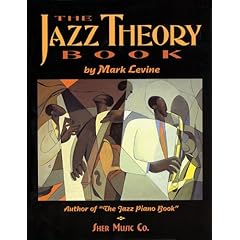Instead of booting up the computer this morning I put on a recording of the Bach B minor Mass and listened to the first few movements.
Napster refused to play tracks for me on Saturday, so my attraction to booting up is diminished when I am thinking of listening to music.
I pulled out the Dover score after a bit and followed the “Christe Eleison” duet. The Dover score has the women’s voice parts written in the soprano clef. It occurred to me to attempt to play them. I have always thrown myself at clef transposition and had limited success.
But one of the insights I have had recently is that often in my musical education I have attempted material far to hard for me. For example, an organist told me that he prepared for the FAGO exam (a difficult accreditation given by the American Guild of Organists. If you pass you are a “fellow.” A bit sexist, eh?) by taking Bach chorales and transposing them in all keys. I tried it. I found it (and still do find it) very difficult. Hence my transposing didn’t improve as much then as later.
My friend Nick Palmer told me that when he was in undergrad school he was pointed toward the piano accompaniments of Schubert lieder for transposition exercises. When I looked at these I found them much much easier than a Bach chorale.
So when I was thinking of stretching my musical muscles by attempting to play through the “Christe” vocal parts I realized that I should concentrate on the two lines in the difficult score and only add the bass and the obbligato when I could. This worked out pretty well.
Then for some reason I was in the mood to think about Haydn. Picked up Charles Rosen’s book that I have been reading (“The Classical Style: Haydn, Mozart and Beethoven”). One of the many things I like about this book is that he provides pretty complete excerpts of works reduced for playing at the piano. Played through the exposition section of a Haydn String quartet in Bb major, op. 50, no.1. Rosen is very convincing about Haydn’s cleverness. But I don’t need convincing. I have thought Haydn was clever ever since I took a grad course on him.
Rosen demonstrates how Haydn takes two simple musical ideas (a simple repeated note begins the pretty easy cello part written for King of Prussia to play and a slightly elaborated turn figure – Eb, F, G, Eb, D) and uses them as the structural unit for the entire movement.
Haydn tends to take a musical idea and development it structurally in ways that are economical and amazing.
I like the fact that Rosen points out that it’s easier to hear Haydn’s musical ideas than see them on the page. In other words, Haydn is writing for the ear not the eye.
I have been noticing lately the difference between an extended theoretical discussion of the building blocks of specific music and the experience of playing and listening to it. Nothing beats playing and listening.
I’m off to play through the exposition section of this string quartet once again. If my Napster were working, I would see if it’s online. Hey I haven’t been kicked out of GVSU yet. Maybe I’ll check for it on Naxos (which is provided for teachers and students at GVSU).

















